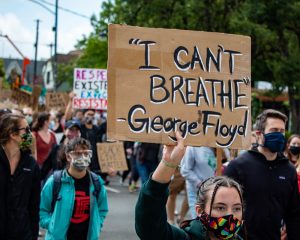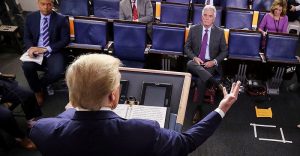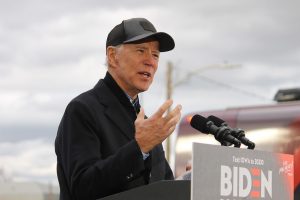
Black Lives Matter protesters, at odds with Donald Trump
In 2012, President Barack Obama and his reelection campaign team did something very smart: they came out early and defined Obama’s opponent, Willard Mitt Romney, in a very unflattering way before Romney could define himself to the voters. Specifically, the Obama campaign defined Romney as an out-of-touch elitist, Mr. One Percent, with his offshore bank accounts and his dressage horse. This reinforced an existing narrative about Romney, one that Romney himself fed with his “47 percent” video, ultimately leading to Romney’s defeat.
This year, Joe Biden‘s campaign is taking a similar approach towards Donald Trump. Biden smartly has been running a general election-style campaign against Trump from day one. This was a risky strategy, since Biden had to battle some 24 challengers for the Democratic Party presidential nomination before he could run against Trump as the nominee. However, the strategy worked, and Biden is now the official Democratic nominee, something that would have happened sooner if not for primaries that were delayed due to the Coronavirus (COVID-19).










